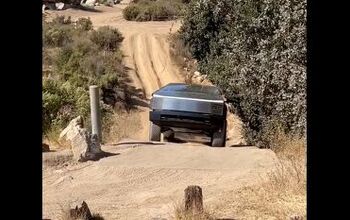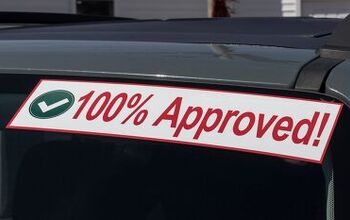Volkswagen's Diesel Fix Has European Customers Wishing They Hadn't Bothered

Volkswagen’s U.S. diesel woes have consumed most of the oxygen in the room for the past year and a half, but Europe has its own issues with the automaker’s emissions-spewing powerplants.
While owners on the continent haven’t had to hand their vehicle over in exchange for cash, the region’s less-stringent environmental laws still require that VW offer a fix for its rigged diesel engines. Good news for air quality, but bad news — apparently — for drivers. Many owners have discovered the fix turns a perfectly fine (though illegal) vehicle into a nightmare.
According to UK’s The Guardian, complaints are pouring in over the newly compliant 1.6 and 2.0-liter diesel four-cylinders.
A total of 1.2 million VW, Skoda and Seat vehicles are currently under recall, of which half a million have seen a fix. Some just require a software upgrade, which happens to be the only available fix for certain newer-model U.S. vehicles, but a more in-depth fix for other vehicles has proved to be a problem. The U.S. hasn’t approved a full-scale fix for older affected vehicles, but it remains on the option list for VW owners facing a buyback.
2015 model year vehicles equipped with the 2.0-liter diesel will ultimately see the installation of a diesel particulate filter, diesel oxidation catalyst and NOx catalyst, in addition to the software tweaks. In Europe, however, a “flow transformer” mesh insert installed in the air intake allows the car’s computer to gain a more accurate reading of incoming oxygen.
The newspaper claims the alterations performed on 1.6-liter engines have turned vehicles into “a shadow of their former selves.” Some of the grips stem from the fact that the recall’s voluntary nature wasn’t known to some owners, or that the fix was performed during routine servicing.
One Guardian reader, James Harrison, said his 2010 Golf 1.6 “has begun to stall intermittently, and is difficult to restart.” The vehicle now goes into regeneration mode — a process where the particulate trapped by the filter is burned off at high temperatures — every day, rather than a few times a year, he claims.
“If the car is regenerating every day, what will this do to the lifespan of the EGR [exhaust gas recirculation] valve and the rest of the exhaust system, which cost thousands to fix if they go wrong?” Harrison wrote, adding that the fix has “ruined” his car.
Volkswagen admits there are some complaints about the fix, but denies that it’s a widespread issue.
Last fall, the British automotive website Honest John detailed some of the complaints that began rolling in regarding 2.0-liter Tiguans. Fixed vehicles often exhibit a decrease in low-end torque, accompanied by an annoying rattle, the publication said. One owner said a VW mechanic confirmed their 2012 Tiguan lacked power between 1,000 and 2,000 rpm. Another claimed their 2012 2.0-liter Passat wagon was a “sluggish, underpowered donkey.” Another poster’s fuel economy dropped by up to 10 percent.
One Honest John poster, claiming to be a former VW mechanic, advised readers to have a specialist reverse their vehicle’s engine fix.
All of this seems like another headache in waiting for Volkswagen of America. While Volkswagen claims the approved fix for newer 2.0-liter engines will “not affect vehicle fuel economy, reliability, or durability,” Europe’s woes should make the automaker wary of repairing older models. So far, the buyback has proved very popular in the States. If the EPA fails to approve an older engine fix, it might not be a loss to either VW or owners.

More by Steph Willems
Latest Car Reviews
Read moreLatest Product Reviews
Read moreRecent Comments
- Varezhka Maybe the volume was not big enough to really matter anyways, but losing a “passenger car” for a mostly “light truck” line-up should help Subaru with their CAFE numbers too.
- Varezhka For this category my car of choice would be the CX-50. But between the two cars listed I’d select the RAV4 over CR-V. I’ve always preferred NA over small turbos and for hybrids THS’ longer history shows in its refinement.
- AZFelix I would suggest a variation on the 'fcuk, marry, kill' game using 'track, buy, lease' with three similar automotive selections.
- Formula m For the gas versions I like the Honda CRV. Haven’t driven the hybrids yet.
- SCE to AUX All that lift makes for an easy rollover of your $70k truck.


































Comments
Join the conversation
I intended to buy one of these TDIs several times, but my trusted mechanic, a VW/audi enthusiast, always cautioned me away. Not like the older TDIs, he said. The engines were fine, but the emissions systems were so elaborate that they would give me trouble down the road. I wish I had bought one anyway and enjoyed VW's generous buyback offers. But I wonder how long with these components last when they're pressed into service much more often?
Widely predicted outcome. Now these poor owners are going to see a big drop in the resale value of their cars.